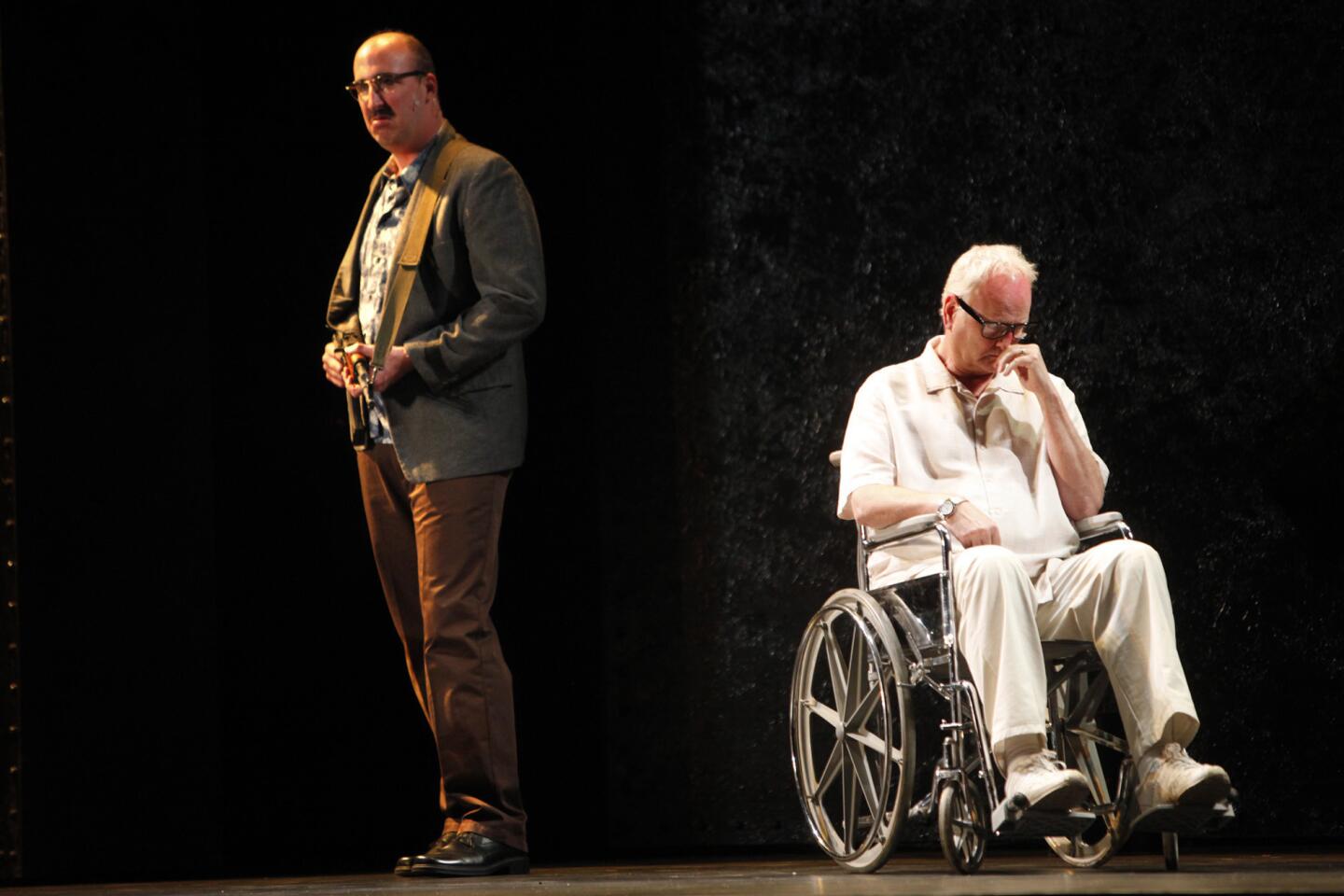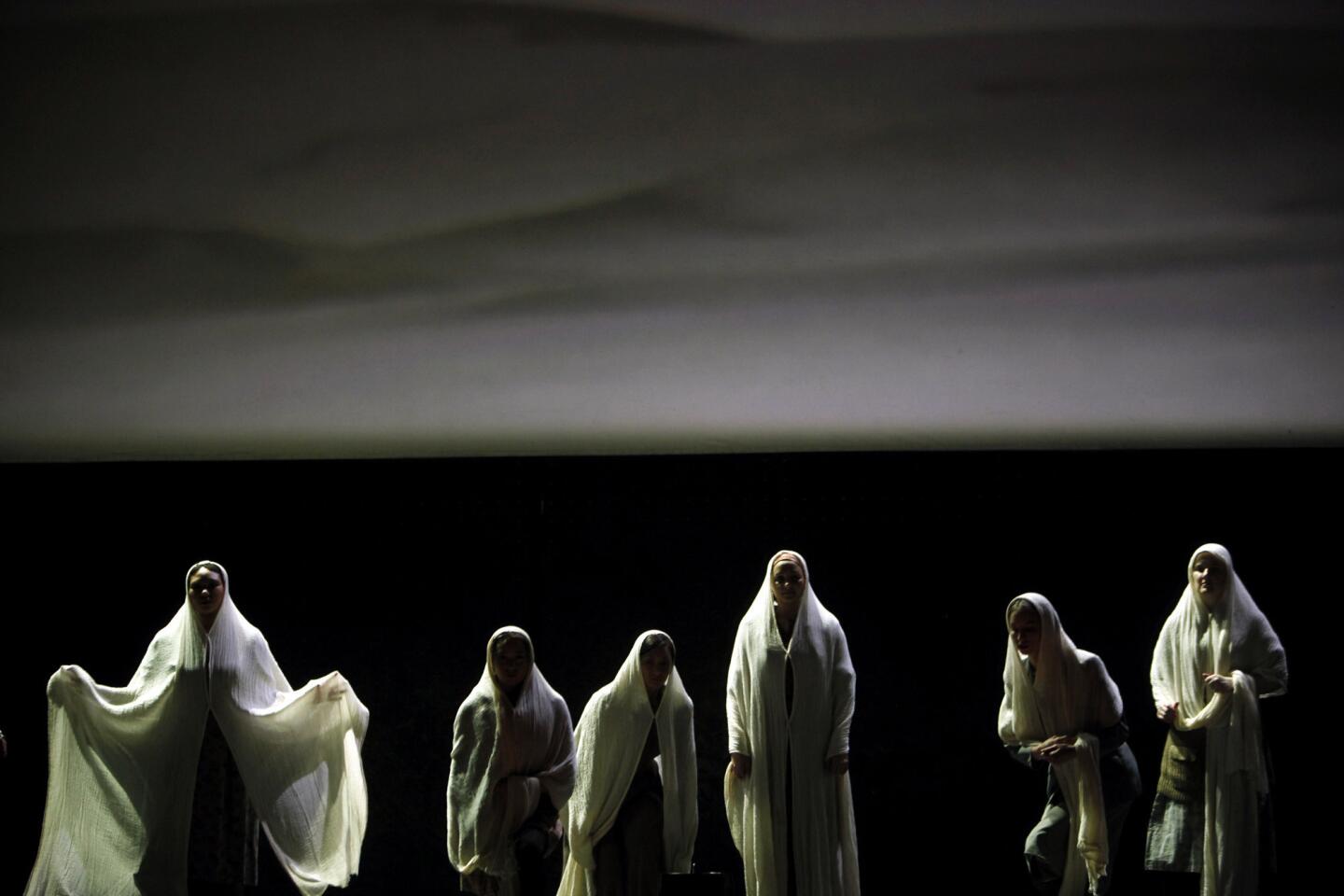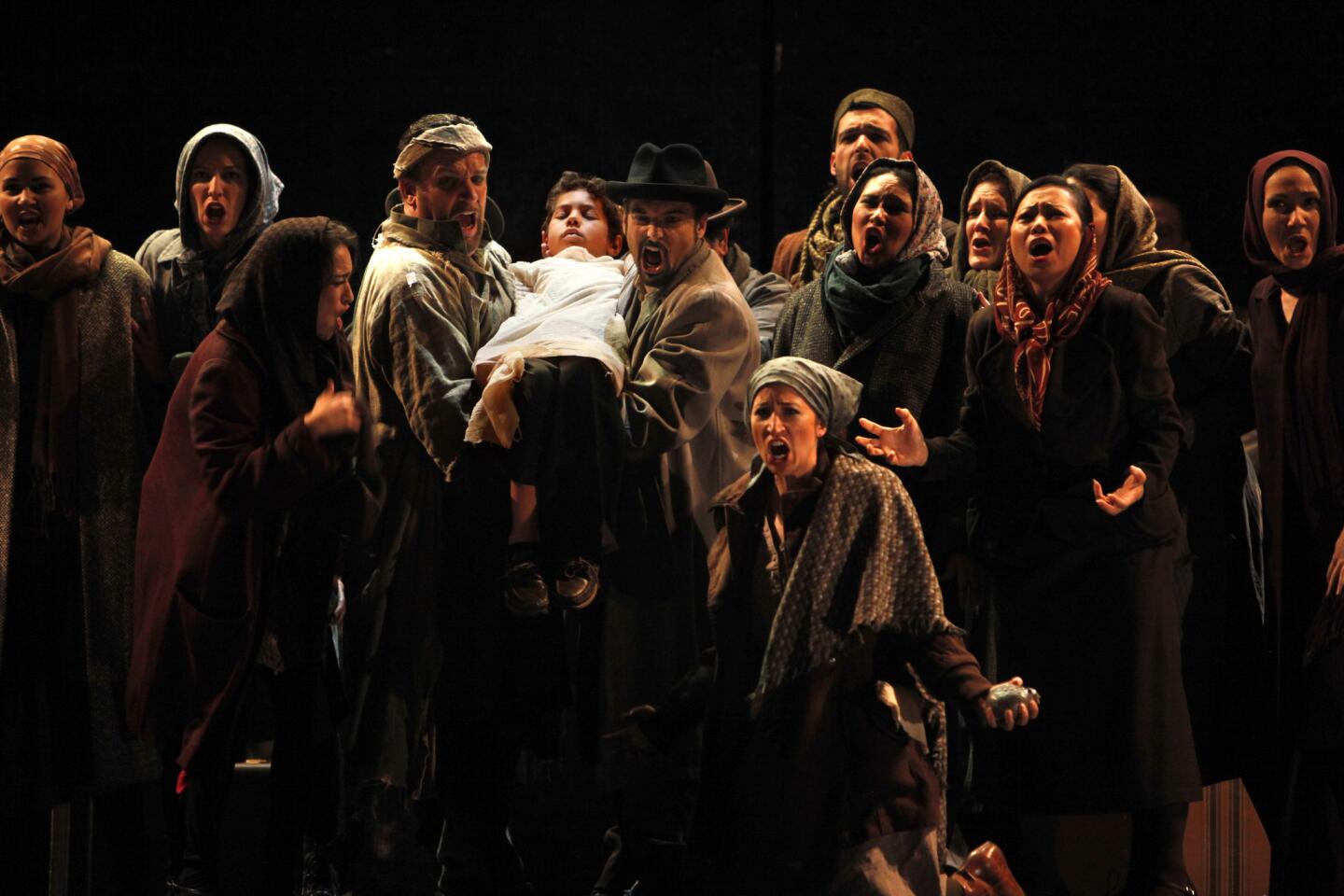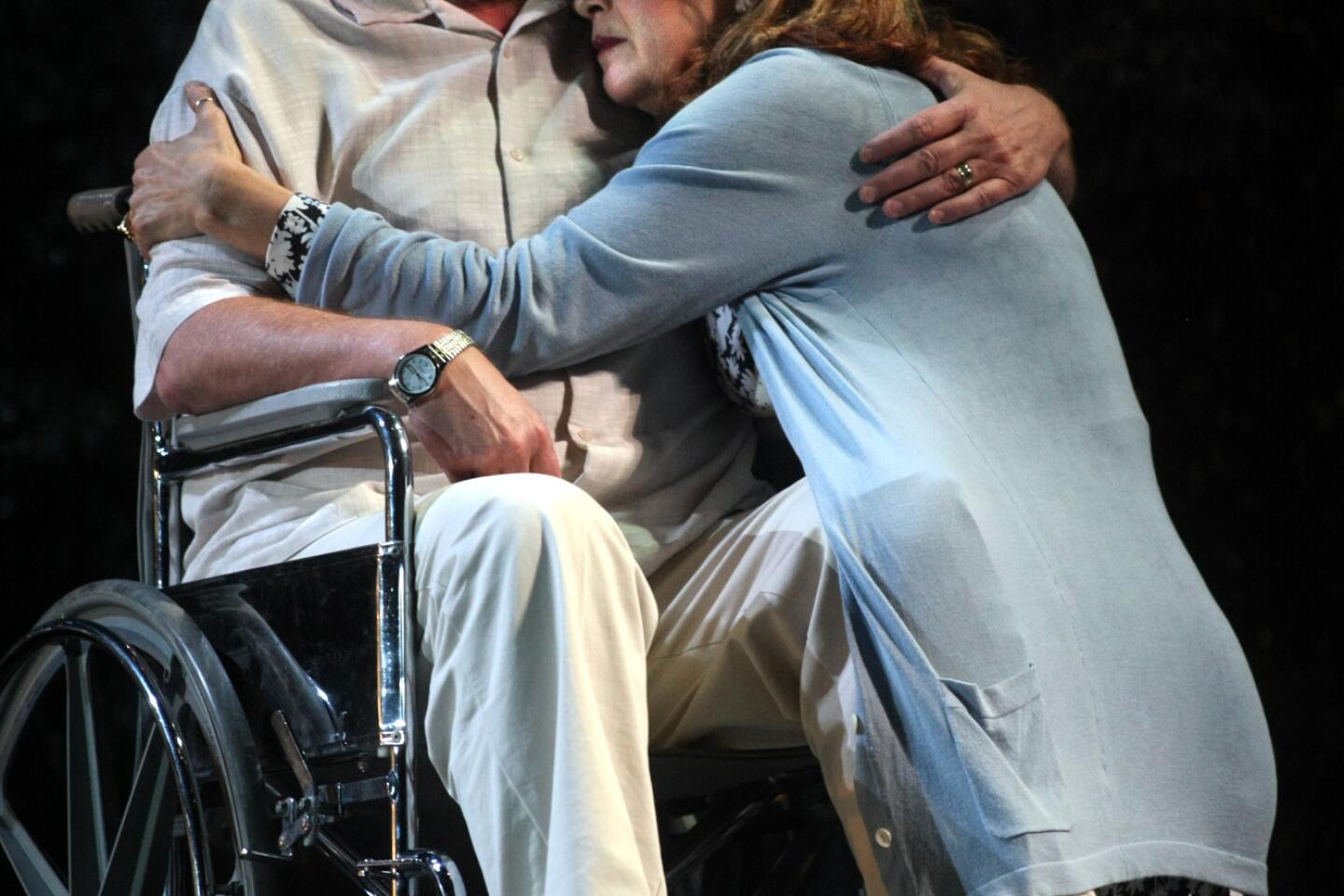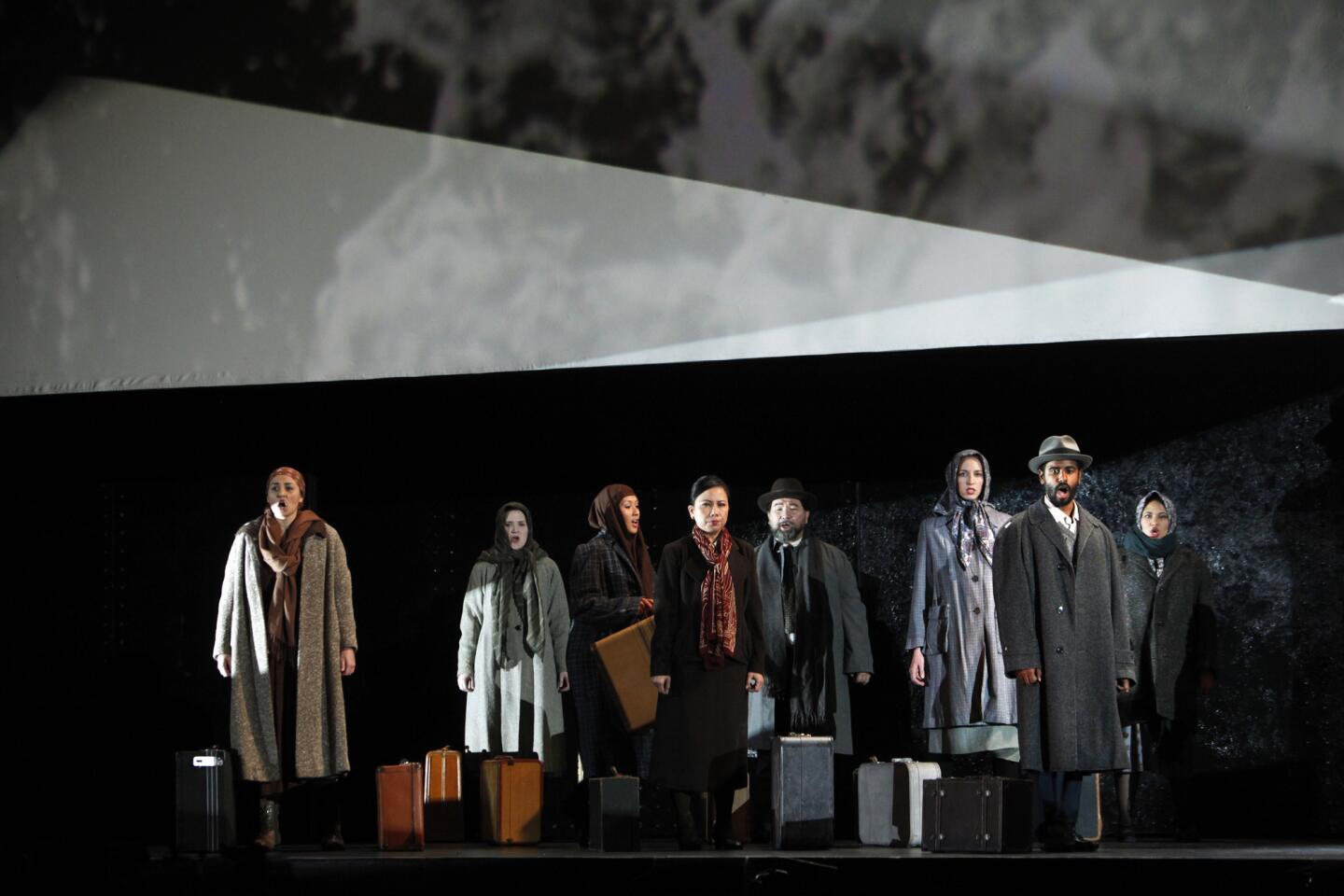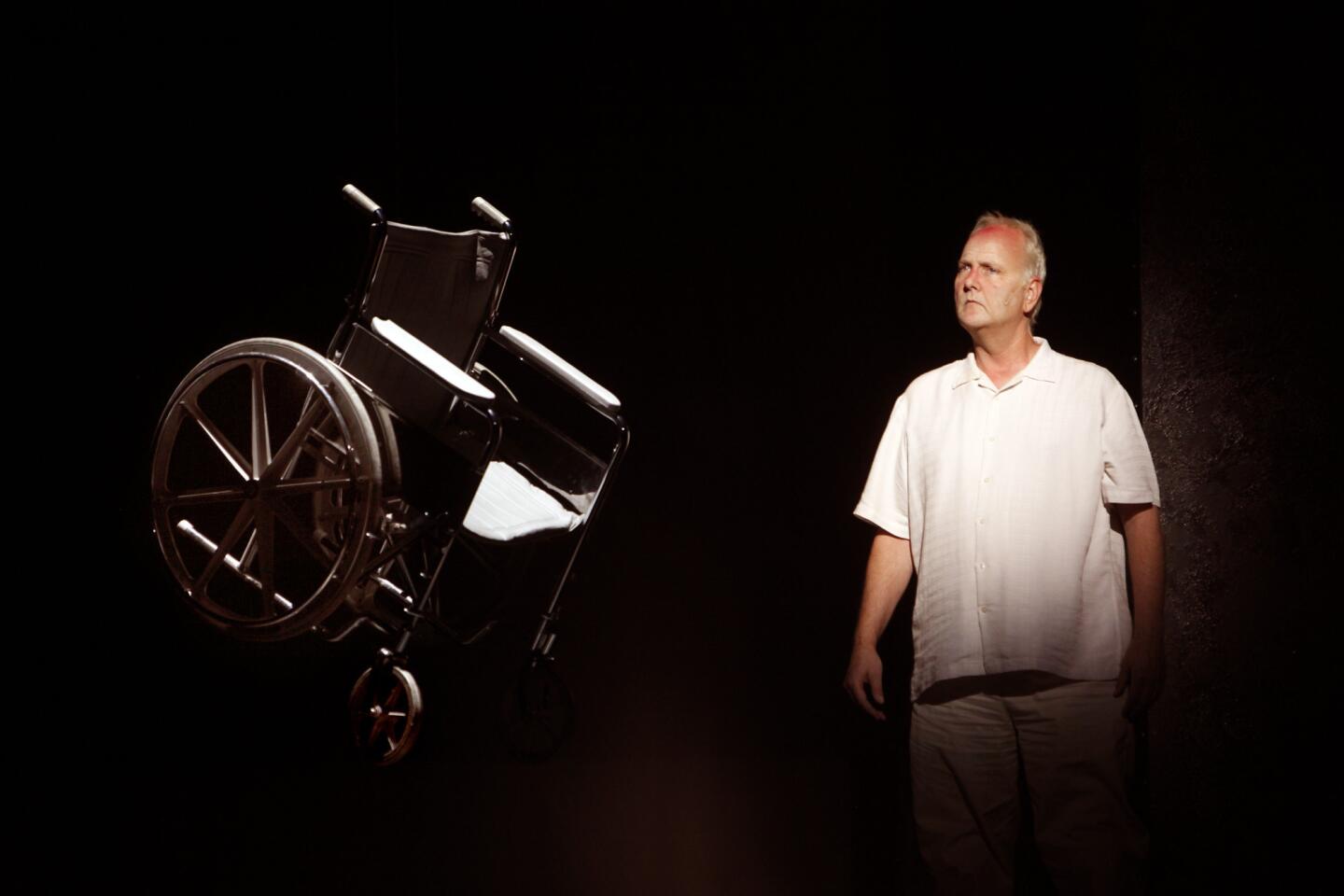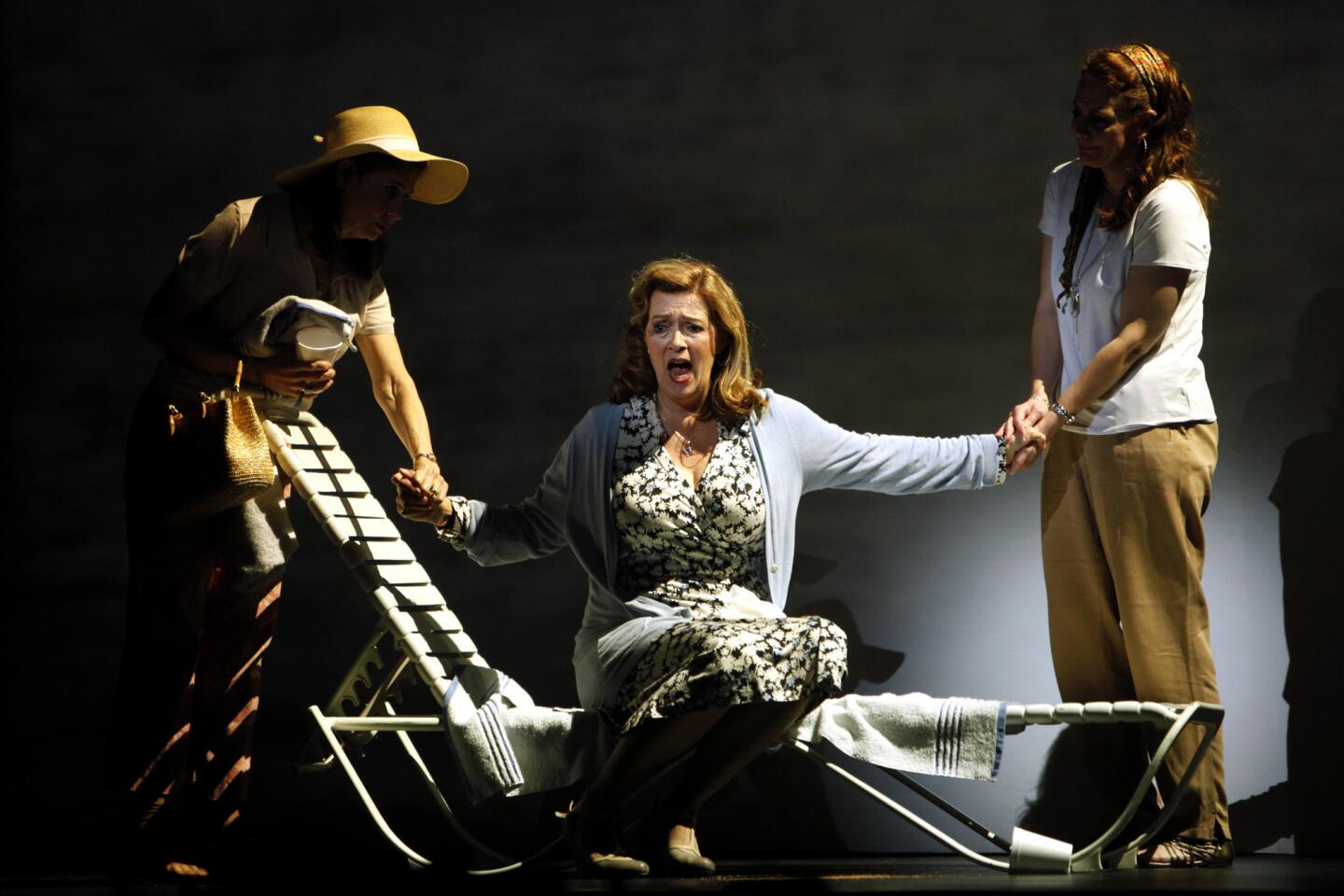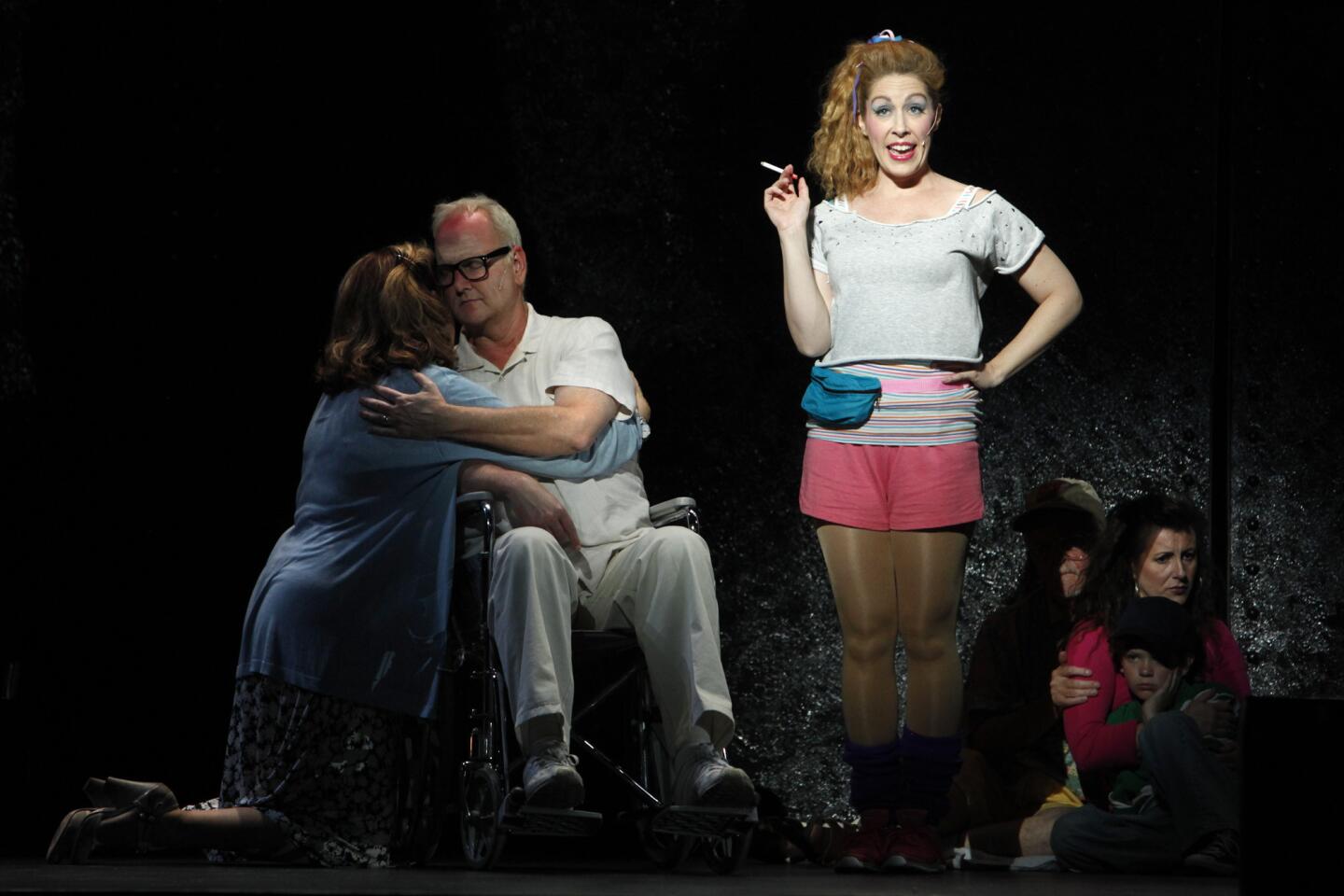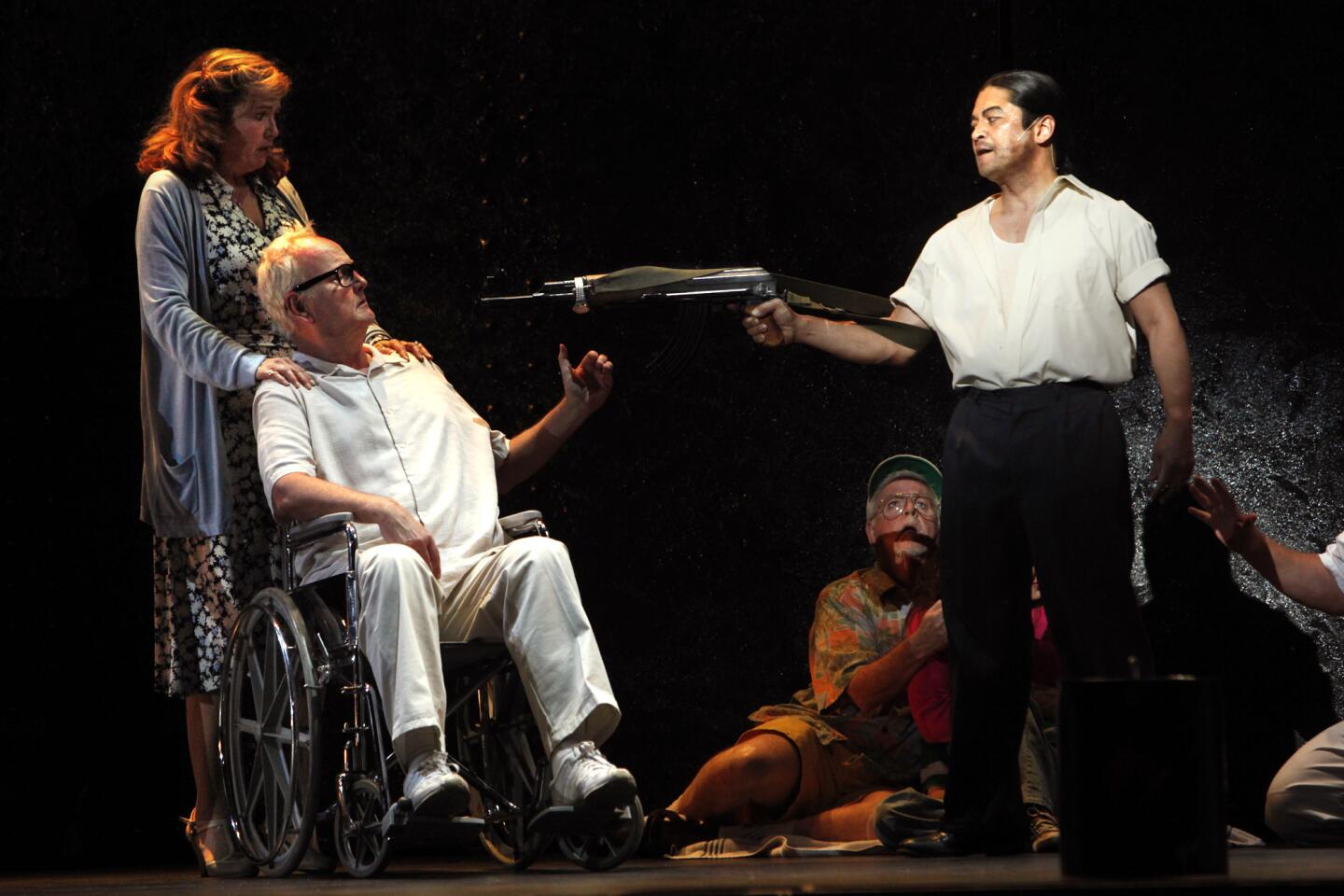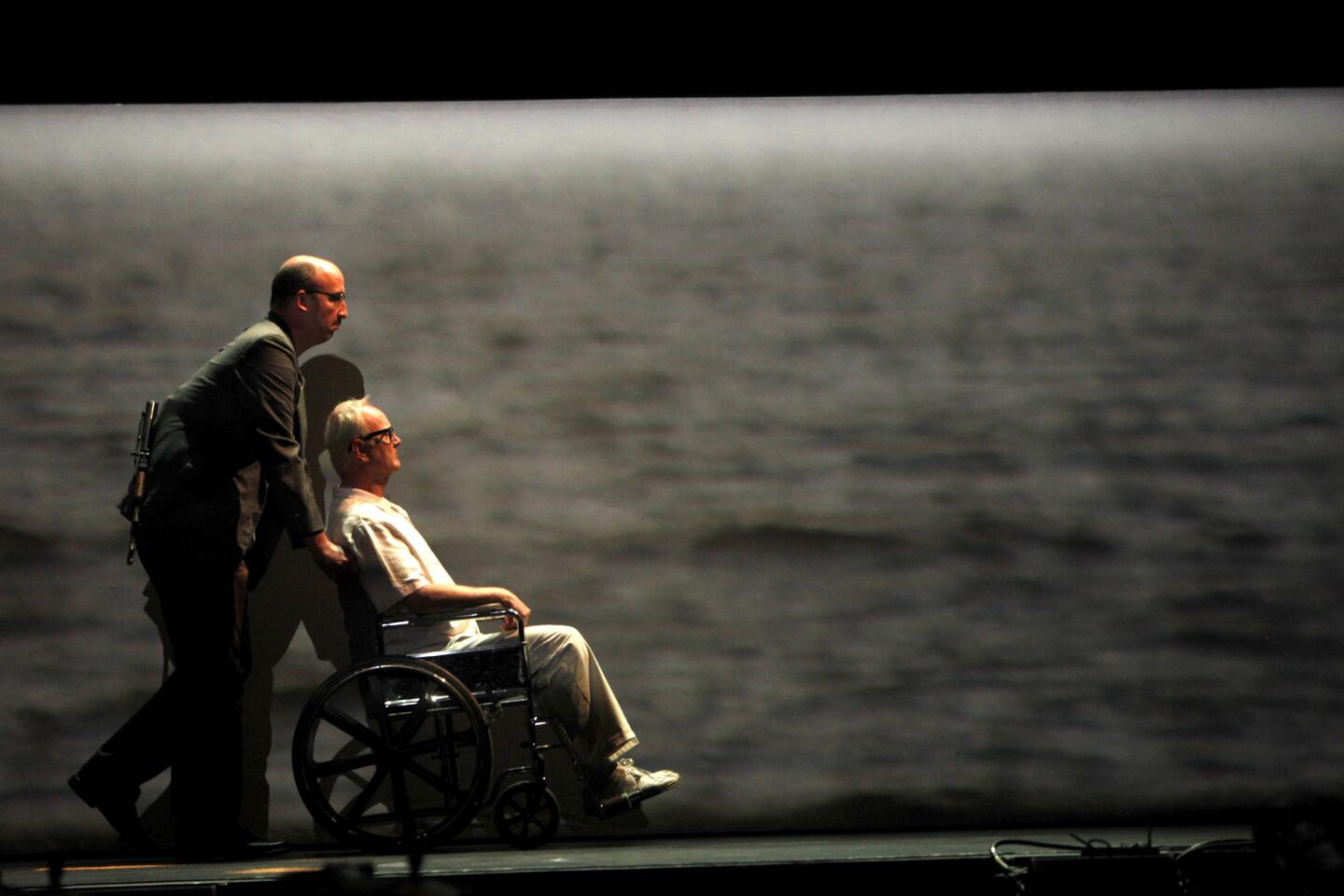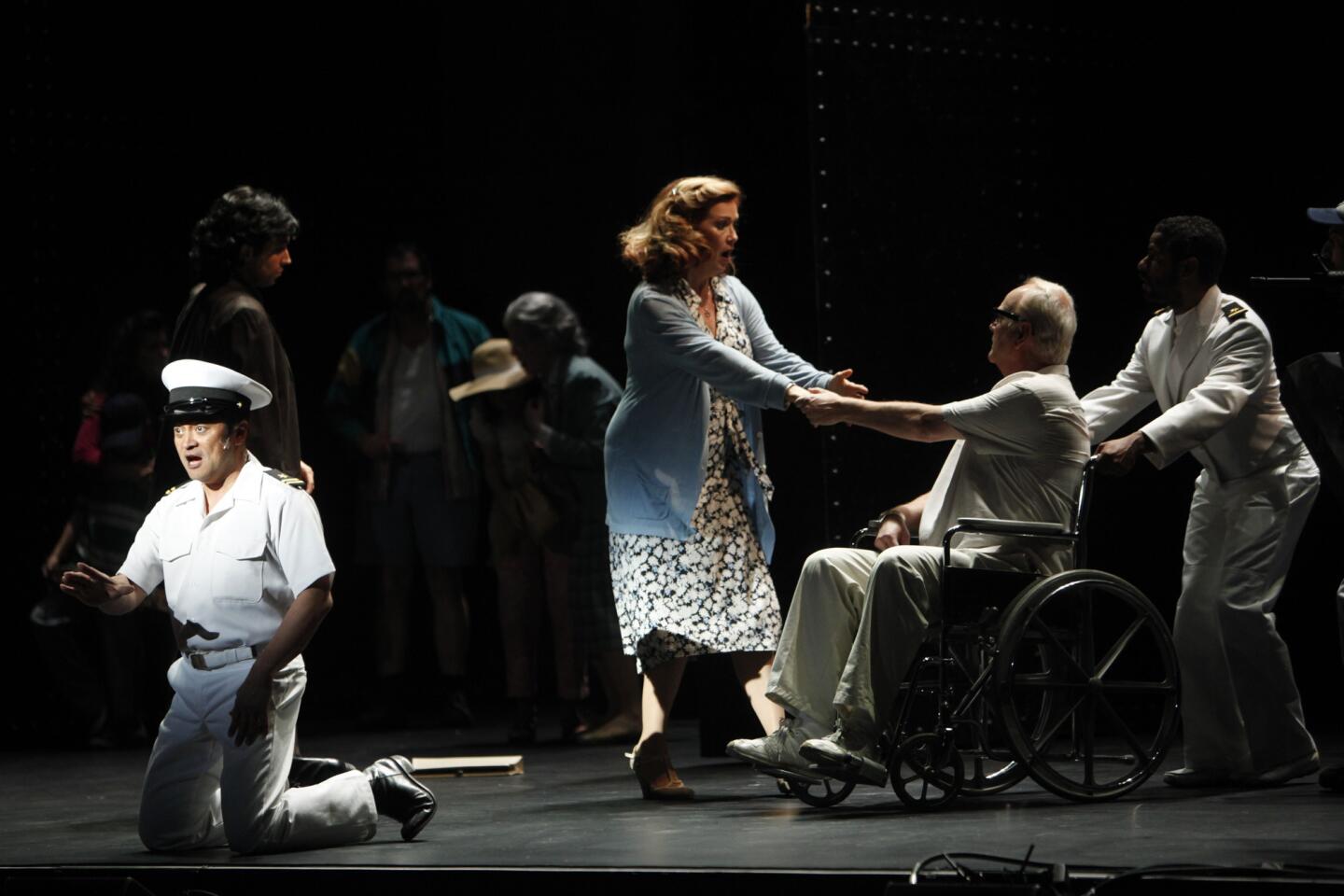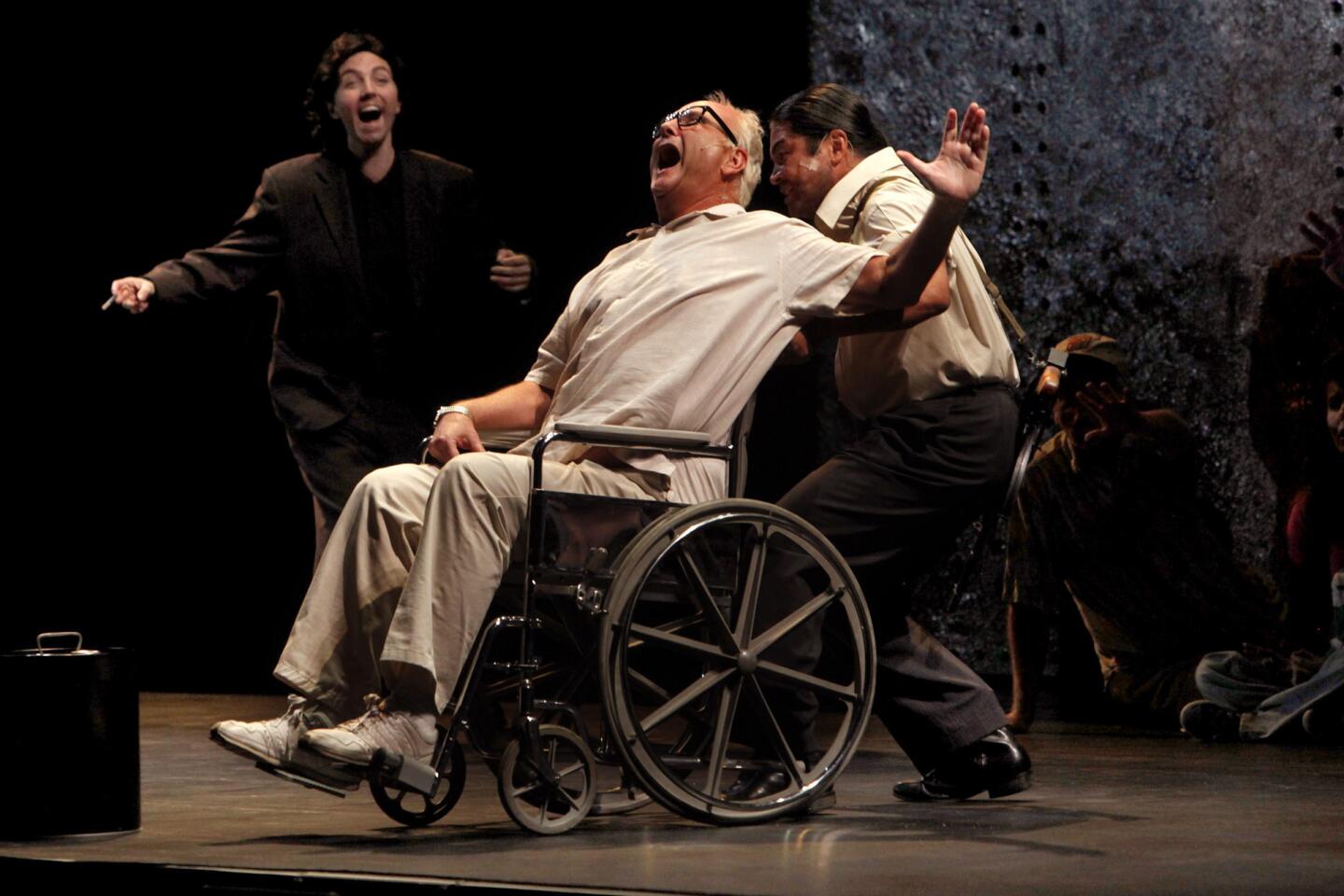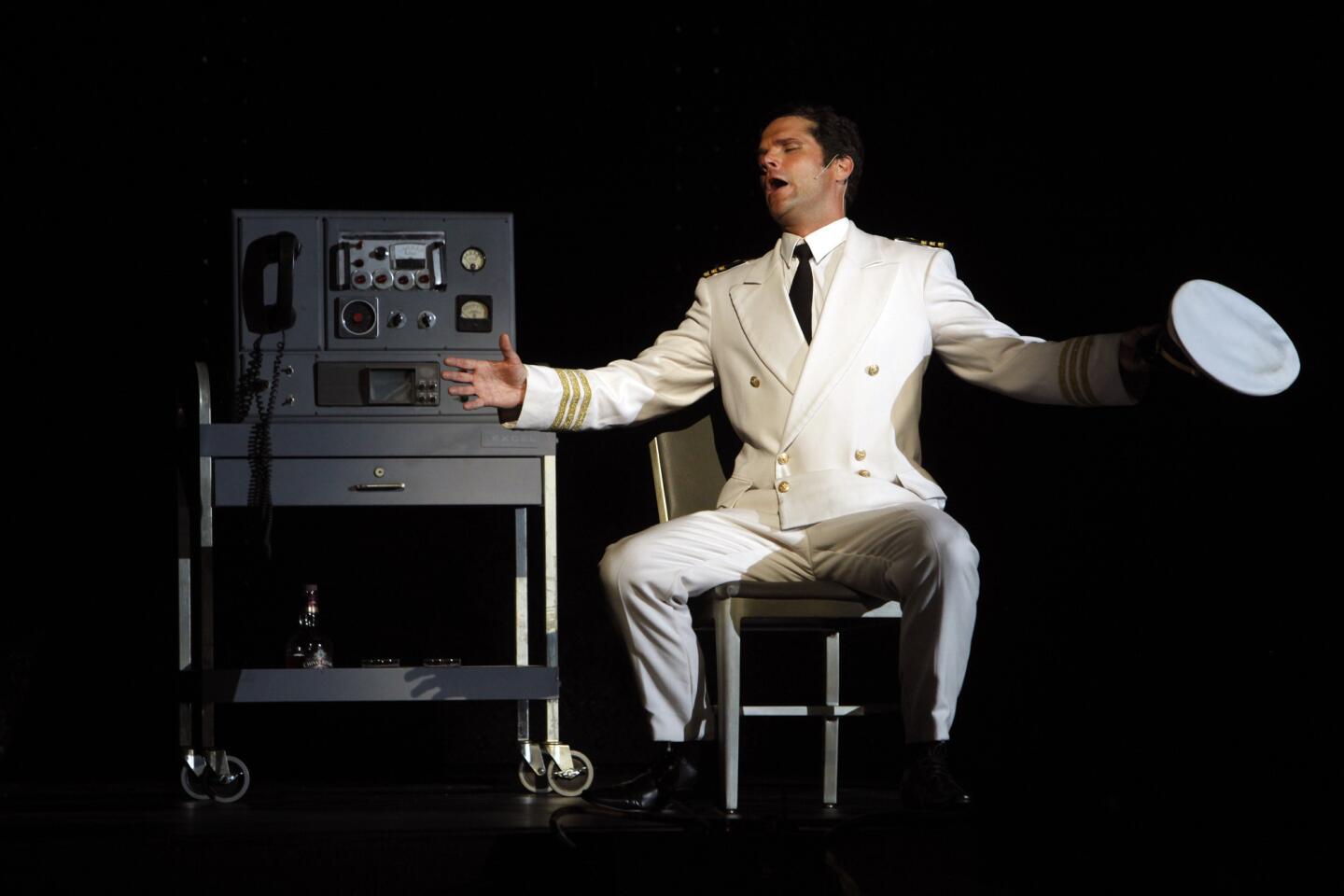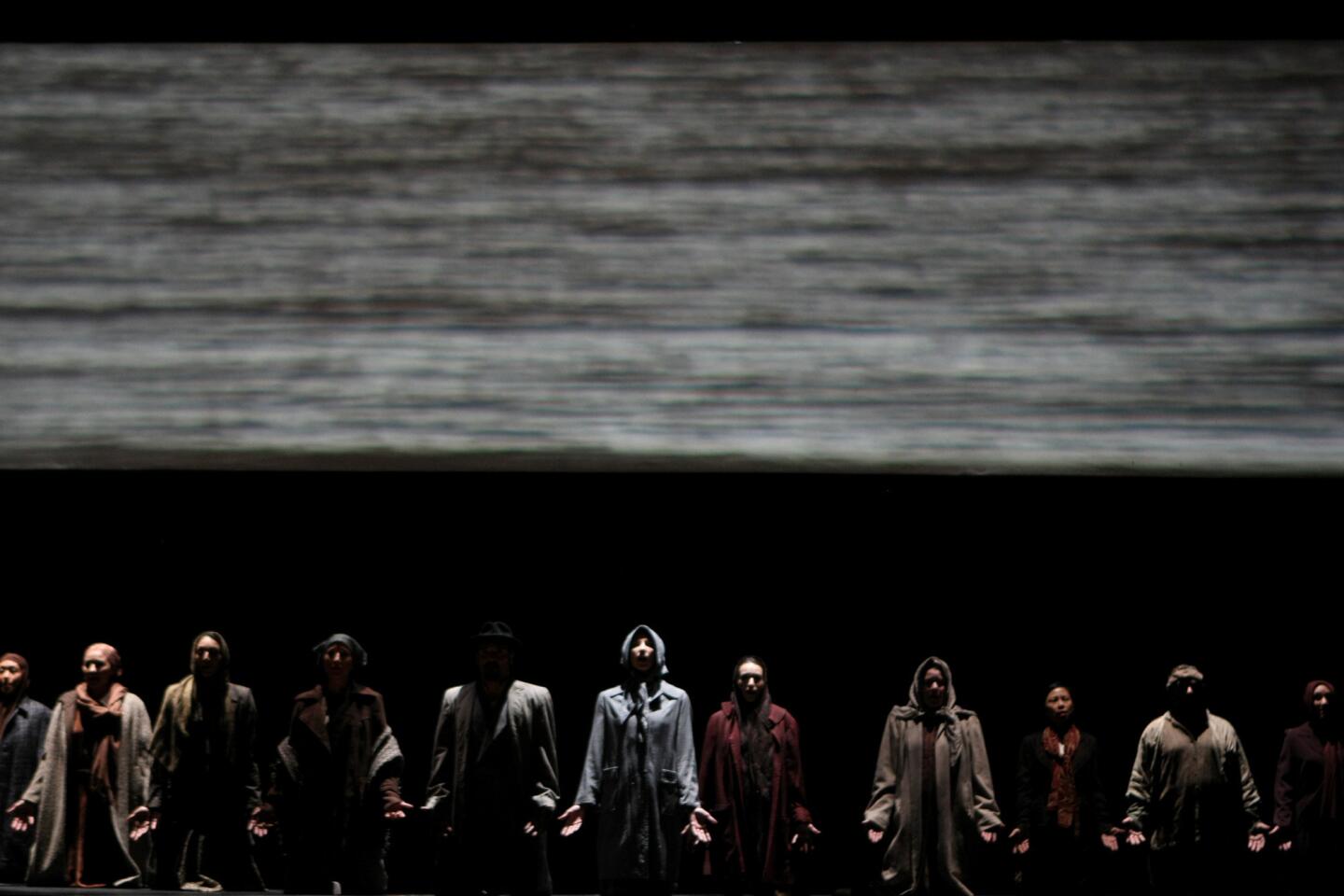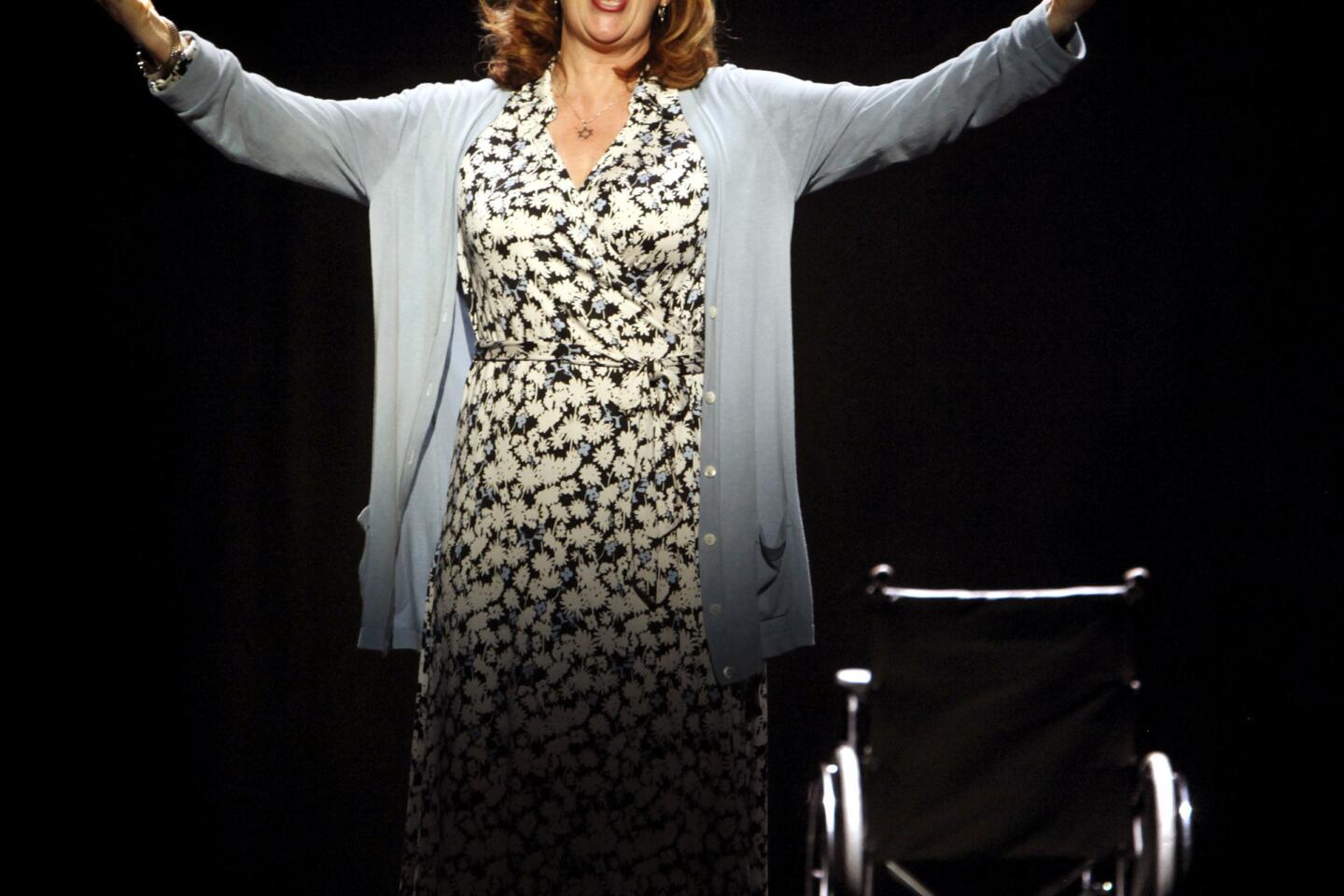Review: Long Beach Opera’s ‘Death of Klinghoffer’ illuminates world
Long Beach Opera is the latest company with bragging rights to John Adams’ “The Death of Klinghoffer.”
Premiered in Brussels in 1991 and called the most controversial opera of our time, the opera presents the hijacking of Italian cruise ship Achille Lauro off the coast of Egypt in 1985 from more than one point of view, and thus generated the charge of showing sympathy with the Palestinian terrorists responsible. Los Angeles Opera was a co-commissioner but has studiously avoided staging “Klinghoffer.”
Three years ago, Opera Theatre of St. Louis took up the challenge with the first new production in the U.S. in 22 years. That production is the one Long Beach turned to for the Southern California premiere of “Klinghoffer” Sunday night, the first of two performances at Terrace Theater.
There were no signs of indignation. Indeed, a loud brava rang out Sunday even before the last note of Marilyn Klinghoffer’s final aria could fully die out. The wife of Leon Klinghoffer, shot and thrown overboard in his wheelchair, ends the opera with prophecy. If a hundred people were murdered and their blood flowed in the wake of the ship like oil, she sings, only then would the world intervene.
PHOTOS: Best classical concerts of 2013 | Mark Swed
Adams’ score and Alice Goodman’s libretto beg at this point for contemplation, a few seconds, at least, of stunned silence. That had been the case everywhere that I have attended this opera, even when boos later ensued.
Long Beach Opera has no license to muzzle its audience. This opera in particular eloquently posits the necessity for freedom of expression. It shows the Middle East crisis as insoluble as long as enemy refuses to listen to enemy. That brava could be read as operatic success, a generous gesture of hailing a singer, were “Klinghoffer” just another operatic fable. It isn’t.
Klinghoffer is as much passion play as it is opera. Passengers and the captain tell their story. The Klinghoffers and four Palestinian terrorists enact theirs. Pervading choruses comment broadly and profoundly.
The original production by Peter Sellars, who conceived of the opera, relied heavily on subdued movement choreographed by Mark Morris to create an atmosphere of ritual and reflection. Klinghoffer is shot off stage. Outside of time and substance, the dead man sings an overpoweringly affecting aria as his body slowly sinks in the Mediterranean Sea.
PHOTOS: Faces to watch 2014 | Classical music
Director James Robinson’s St. Louis production is not inflammatory. Jews and Palestinians are dressed almost identically, although the image of exiles carrying old suitcases in the desert is so commonplace that Louis Vuitton has a similar look for its latest glossy magazine advertisement. Robinson also employs an Israeli boy and Palestinian boy as overly obvious symbols.
The opera opens with a prologue in which the exiled Palestinians and Jews each make their case, beautifully and persuasively, morally and seductively, for their peoples’ rights to a biblical homeland. But before that, Robinson shoots a shocking flash of light, a glimpse of Leon Klinghoffer in his wheelchair doused with water accompanied by an electronic noise. The image of cold-blooded murder cannot but help color everything that follows.
Three of the four Palestinians were not convincing. Rather than being a deluded teenage romantic who dreams of an imaginary landscape that no longer exists, baritone Jason Switzer’s Mamoud comes across more a deluded, middle-aged, balding, mustachioed academic. Alex Richardson’s Moloqi and Roberto Perlas Gomez’s Rambo are all-purpose thugs.
However, mezzo-soprano Peabody Southwell’s Omar, the youngest terrorist whose aria is incendiary poetry, gave a frightening portrayal of youth vulnerable to extremism in what was also Robinson’s most compelling instance of staging.
CRITICS’ PICKS: What to watch, where to go, what to eat
Much of the controversy of Klinghoffer comes from the fact that the first act belongs to the Palestinians and their point of view. They are temporarily given a chance to show cause. The Klinghoffers only appear after intermission, and the horror of the opera is witnessing terrorism take over from reason.
From his first appearance in the opera, an almost Christ-like Klinghoffer owns the moral high ground. But Robinson overplays his hand not only with the egregious opening image but also with the continual presence of the Klinghoffers onstage in the first act.
Robin Buck’s Klinghoffer was gruff, angry and confrontational. But his body aria was sensitive and graciously staged, with the wheelchair floating up.
The great final confrontation between the ship’s captain, baritone Lee Gregory, and Marilyn Klinghoffer, soprano Suzan Hanson, was ferocious. The captain had tried to assuage the terrorists but lost control and failed.
She then accuses him of complicity. There is no easy solution. They are miles apart. Hanson here produced her operatic sparks. And the performance left it at that.
PHOTOS: Arts and culture in pictures by The Times
But I’ll throw, after a pause for contemplation, a brava for the lively appearance of soprano Danielle Marcelle Bond in the multiple character parts of a Swiss Grandmother, Austrian Woman more concerned with her chocolates than the fate of the Jews on board, and the silly British Dancing Girl.
“Klinghoffer” is a big opera. It got a big set, the imposing hulk of ship designed by Allen Moyer and a big, long video screen to unnecessarily display black-and-white video of seawater.
But “Klinghoffer” didn’t get the big sound it needs. Adams’ spectacularly rich instrumental writing was assigned to a chamber orchestra. The advantage was that LBO company director Andreas Mitisek’s focused conducting brought out details, but without the compensation of contrasting heft. The chorus, likewise, was excellent but also a chamber ensemble.
Adams calls for amplification. That worked well in quiet passages and not well in larger ones, again thus reducing the sense of scale. Perhaps the company might have just acknowledged it was doing a chamber version and found a smaller venue.
But bragging rights are worth something. “Klinghoffer” illuminates the world we live in. One of its creators, Sellars, once said at a lecture at UCLA that art of the past 30 years hasn’t been good enough to change the world. That’s not true.
What “The Death of Klinghoffer” in Long Beach shows, however reduced or one-sided, is that the divided and terror-ridden world hasn’t listened.
‘The Death of Klinghoffer’
Where: Terrace Theater, Long Beach
When: 2 p.m. Saturday
Tickets: $29-$160
Info: (562) 432-5934 or https://www.longbeachopera.org
Running time: 2 hours, 40 minutes
More to Read
The biggest entertainment stories
Get our big stories about Hollywood, film, television, music, arts, culture and more right in your inbox as soon as they publish.
You may occasionally receive promotional content from the Los Angeles Times.
